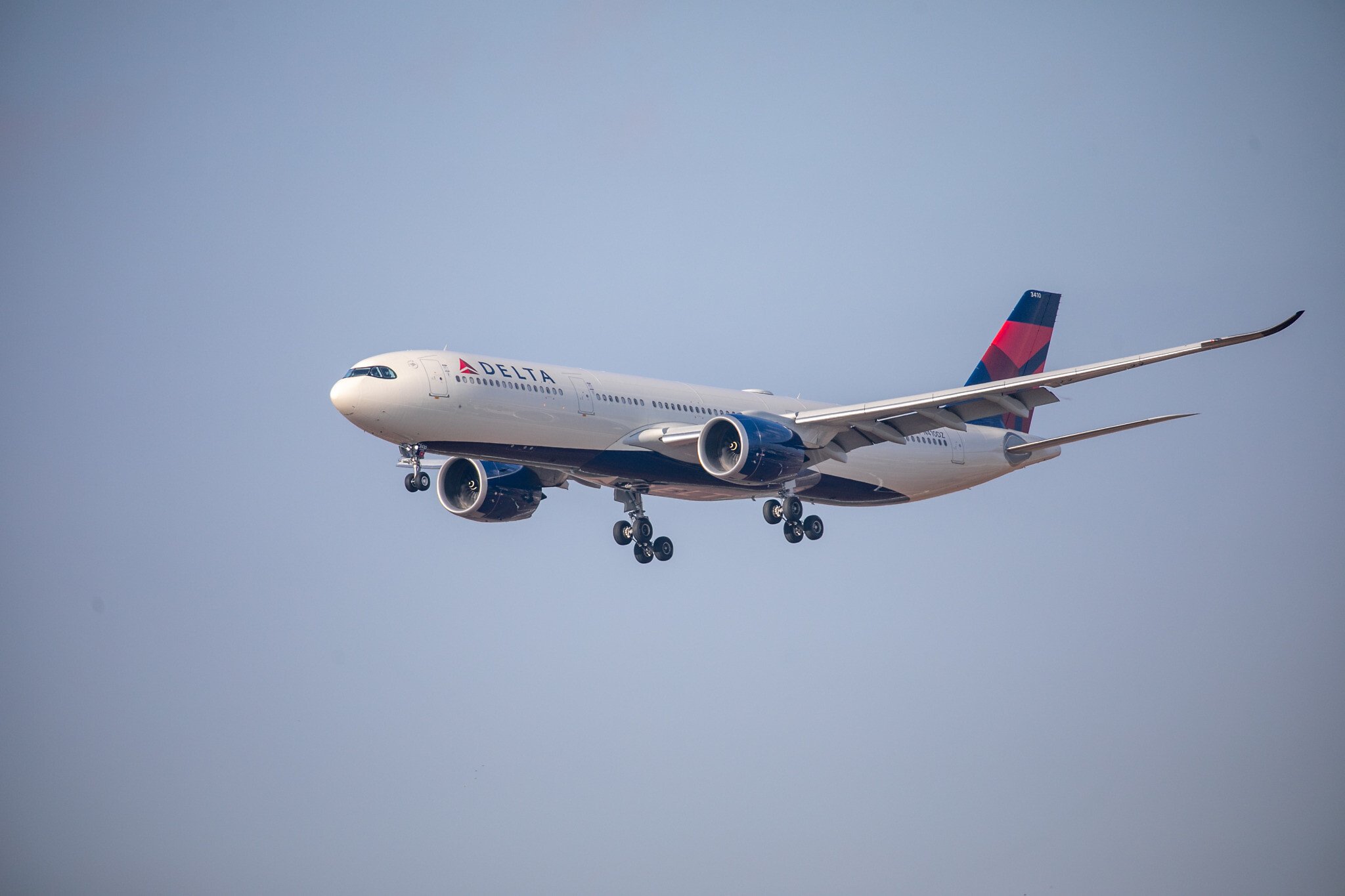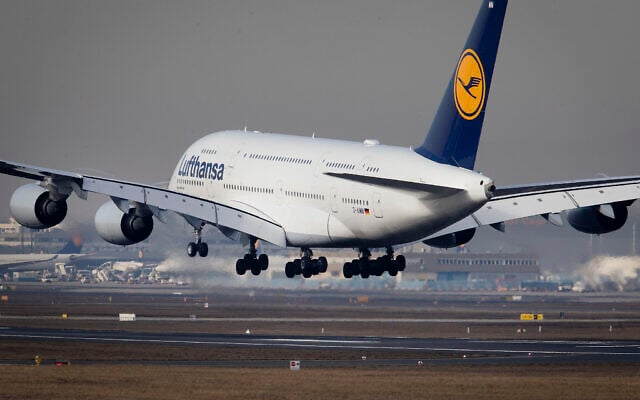



Delta Air Lines said Monday it will resume daily nonstop flight services to Tel Aviv from New York’s JFK airport starting the next day, while the Lufthansa group said it would extend its suspension until June.
On May 4, both carriers joined a list of foreign airlines canceling flight services to Israel, after a ballistic missile fired by Iran-backed Houthis from Yemen struck an area of Israel’s main international Ben Gurion Airport.
In a statement, Delta said, “The decision to resume the route on May 20, which was temporarily suspended in response to ongoing conflict in the region, follows an extensive security risk assessment by the airline.”
“Delta is continuously monitoring the evolving security environment and assessing operations based on security guidance and intelligence reports.”
The US carrier said a travel waiver will be valid for customers who purchased tickets to Tel Aviv on or before May 5 for travel through May 25.
Meanwhile, the Lufthansa group of carriers said it was extending the suspension of flight services to Ben Gurion Airport, which it previously had said would end this week.
The Lufthansa group – whose carriers also include SWISS, Austrian Airlines, and Brussels Airlines, and Eurowings – said that “due to the current situation” in Israel it had decided to extend flight suspensions to and from Tel Aviv through June 8, from the previously announced date of May 25.
Six people were injured on May 4 when the Houthi rebels in Yemen fired a missile that slipped through air defenses and hit Ben Gurion Airport. Israel responded by bombing Sanaa airport in Yemen, which was forced to close for 11 days before resuming some flights.
Since the war broke out with Hamas in the Gaza Strip following the Palestinian terror group’s October 7, 2023, campaign of slaughter and mass abduction in southern Israel, foreign airlines have repeatedly canceled and resumed their flights to and from Israel.
The ongoing situation — which included rocket and drone attacks from Lebanon, Gaza, Yemen and Iraq, plus two large missile barrages from Iran — has led to Israeli airlines, chiefly El Al, operating at a near-monopoly and setting sky-high ticket prices.
Ryanair chief executive Michael O’Leary said Monday that his airline was “losing patience” with security disruptions at Ben Gurion Airport and could consider moving aircraft to service alternative destinations.
Last week, a group of foreign airlines urged Israel’s Transportation Ministry to declare a special security situation and temporarily limit passenger compensation rights to make the resumption of flight services to the country more feasible.
The Houthis have targeted Israel with missiles and drones throughout the war in Gaza, saying they are doing so in solidarity with fellow Iran-backed terror group Hamas, while also targeting commercial and naval vessels on the Red Sea. The attacks have raised the Houthis’ profile at home and internationally as the last member of Iran’s self-described “Axis of Resistance” capable of launching regular attacks on Israel.
Their attacks on the shipping route drew retaliatory strikes from the United States. In mid-March, the US military under President Donald Trump launched an intensified campaign of daily airstrikes targeting the Houthis. The two sides eventually reached a deal to halt the US campaign in return for the Houthis halting their attacks on shipping. They did not halt their missile launches at Israel, though.
Most of the Houthi attacks over the past year and a half have been thwarted by air defense systems, but some have caused damage and injuries, and one person was killed in Tel Aviv.


